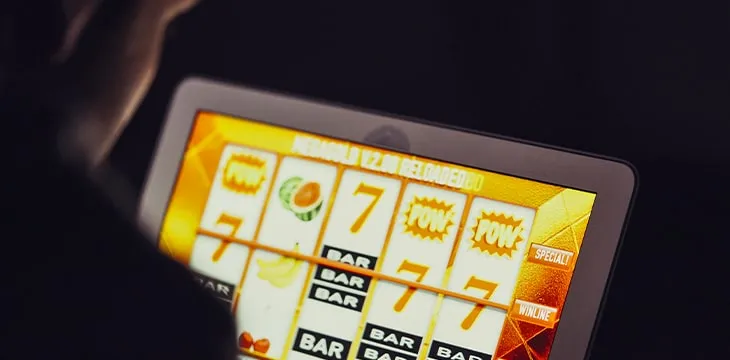|
Getting your Trinity Audio player ready...
|
Blockchain technology is set to have a revolutionary impact on the iGaming sector, not least on account of remote gaming servers and the way they help deliver a better experience, both for gaming operators and their customers.
Recording player and betting data automatically in real time to the blockchain allows for a huge range of possibilities—from smart contracts and AI processes to make back-end functions more efficient, through to delivering better quality games and more targeted incentives for players, in the form of bonuses, loyalty rewards and more.
These benefits of blockchain technology in iGaming extend to responsible gaming, a key focus of the industry in protecting players from exhibiting potentially damaging behaviours. An increasingly important point for regulators and operators alike, blockchain has value to add in ensuring players and operators maintain a safe and sustainable gambling environment.
Mapping the player’s journey
Remote gaming servers and data captured through player journey mapping allow operators to build dynamic player profiles, including data such as their location, bet type and sizes, their deposit frequency, and any number of other relevant data points. This enables operators to better map the player’s journey through their service, and allows for more targeted incentives to increase play time and revenues.
Embedded within that player journey could be a scoring or traffic light system, which can allow for certain markers to be triggered based on player behaviour. Say for example that a player visits a site 2 times per week every 4-6 weeks and bets in $200 lots. If this player is to suddenly switch to playing 3-4 times per week and depositing in heavier amounts this can start to ring alarm bells from a responsible gaming perspective.
In the above scenario, this player may still be viewed as a ‘green,’ or low risk player with a low or reasonable score rating. However, the change in behaviour may be enough to drive the operator to take a closer look at the player and their interactions with the site.
At a certain level, the ‘amber zone’ would trigger, bringing the player into a new tier of perceived risk for their gambling behaviours. This would give rise to an interaction between the operator and the player, where the operator can suggest a betting limit, a time out, remove or reduce incentives such as bonuses, and elevate the monitoring of the player taking a more proactive interest in the player behaviour.
Industry moving towards responsible, sustainable gaming
This point of communication is about much more than just responsible business—in many jurisdictions, it is a requirement of law that operators take these safeguard measures when behaviours of this kind are identified. Especially with regulators across Europe, failures here can lead to the imposition of substantial fines for operators.
Fortunately, with reliance on blockchain technology, these interactions can be permanently and immutably recorded on chain, timestamped and auditable by regulators as required. This means in essence that blockchain tech can prove operators are adhering to the laws around responsible gaming, and discharging their obligations to players and regulators in the appropriate manner.
As the industry as a whole moves more swiftly towards sustainable and responsible gaming, both regulators and operators are becoming more proactive in their efforts to address these potential harms. But under current structures, no centralised record of self exclusion exists, and this can leave operators in potentially difficult situations regarding their own compliance requirements.
Traditionally, operators find it difficult to prove that they have adhered to the rules and regulations from the regulator given that there is no central resource of data, including the communication between the player and operator. This infringement could have occurred months or years in the past, and possible personnel changes could make it difficult for the operator to prove they followed the regulator’s rules.
To make matters even more challenging, different regulators across jurisdictions have different levels of expectation. For example, the requirements imposed by the U.K. Gambling Commission differ from those imposed by regulators in Malta, or in Germany, and in the case of multijurisdictional operators, there is a need to maintain compliance with each of these regulators simultaneously.
The net result here is that for some operators, the burden of compliance is already proving too much. This has some undesirable consequences too, driving some operators underground, into the black market.
Here’s where blockchain can help
In 2020 alone, gambling firms were slapped with fines exceeding £44 million, an increase of 175% on the previous year. In the first quarter of 2021, we’ve seen fines hit £24 million already, with the ever increasing ratchet of regulation driving up the amount and frequency of these penalties being faced by the industry. Operators are finding it increasingly difficult to prove they are adhering to the rules, and as a result, these types of fines and penalties are becoming sadly ever-more common.
Fortunately, help is at hand, in the form of blockchain technology. This is the solution to this growing problem for operators, allowing for a verifiable, provable model of discharging responsible gaming and other compliance requirements.
Unlike most other siloed databases, blockchain provides an open, auditable, immutable record of timestamped data, which can help in satisfying regulators as to individual operators’ compliance with the rules. For operators, it allows them to prove they have discharged their responsibilities, and provides an evidence base for challenging alleged breaches of their licence conditions.
In the first instance, blockchain records can prevent fines from being imposed acting almost like an insurance policy protecting against potential fines, or can provide an evidence base through which regulators can automatically identify compliance. But from a player protection point of view, there’s some serious utility here too.
With the help of smart contracts and other automation functions, blockchain tech can trigger automatic responses to flagged gambling behaviours, such as imposing limits and recording interactions between operator and player on chain, without the need for a manual decision. And because every move is recorded and timestamped, it acts as a log book, recording each step taken by the operator towards meeting these compliance requirements.
This also means players can be nudged and encouraged towards more responsible gambling behaviours, as well as identifying opportunities for educating players about the risks of their gambling, and about how they can work towards a more responsible approach to their gaming. This in turn can lead to improved player yields, keeping players within sustainable boundaries and limits, delivering a win/win outcome for players and operators.
Blockchain technology moves the conversation between operator and player from a disparate, trust-based environment to a trusted, verifiable, accountable platform on chain, which anyone with access can view and analyse. Regulators can even get access directly to the data collected and recorded by operators on-chain, and can deploy their own on-chain tools to analyse and respond to breaches of compliance requirements. Regulators can take an immediate overview in real-time, with access to timestamped data that they know to be accurate and immutable, helping improve the regulatory process, as well as improving processes for operators and their players.
Ultimately, the switch to greater reliance on blockchain tech across the iGaming sector means greater protection for operators and players alike. And in an environment of escalating compliance requirements, ever increasing fines, and ever more aggressive regulators intent on ever tighter restrictions, this is a degree of protection operators are going to find becomes much more attractive as time moves on.
Watch: Nick Hill’s panel, Casino & iGaming on Blockchain

 07-02-2025
07-02-2025 





